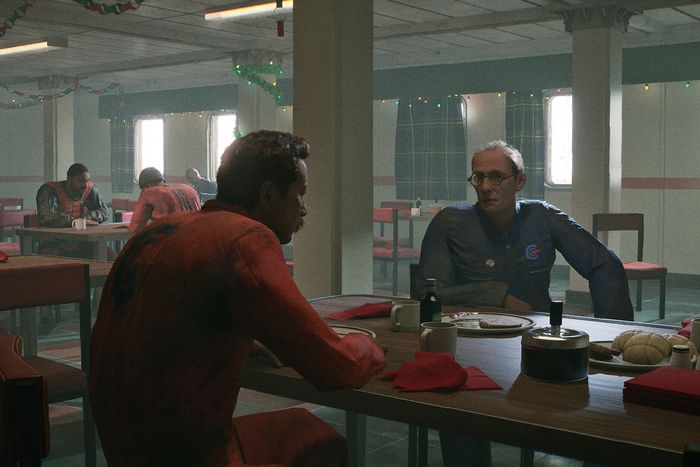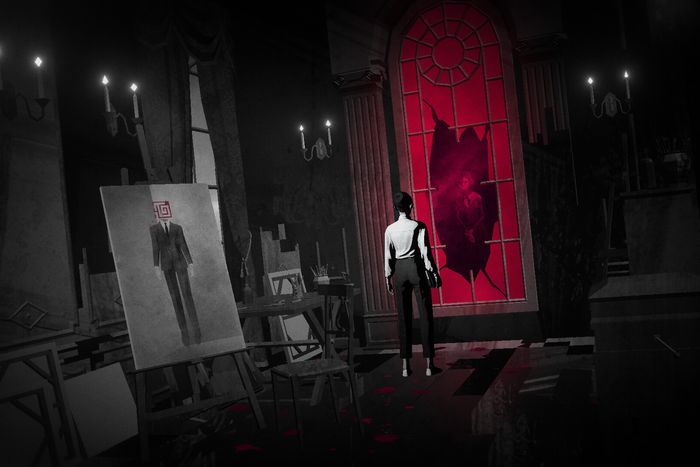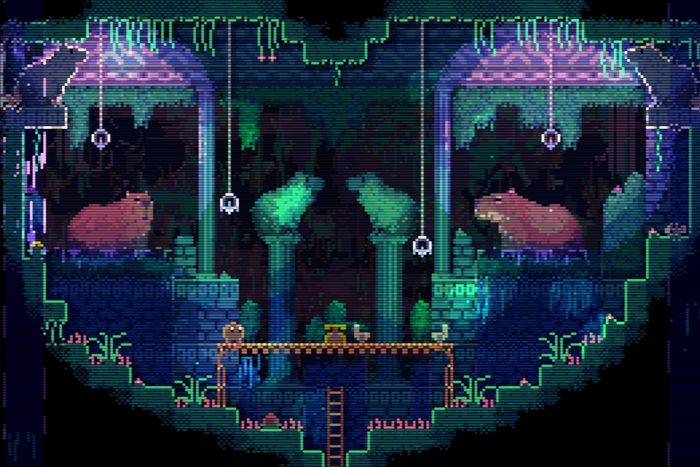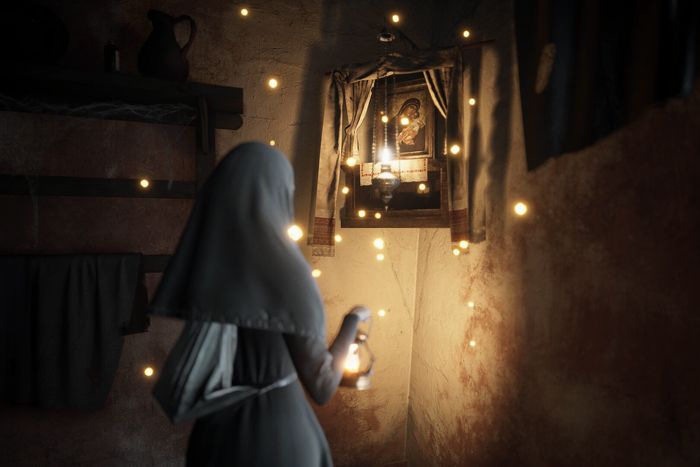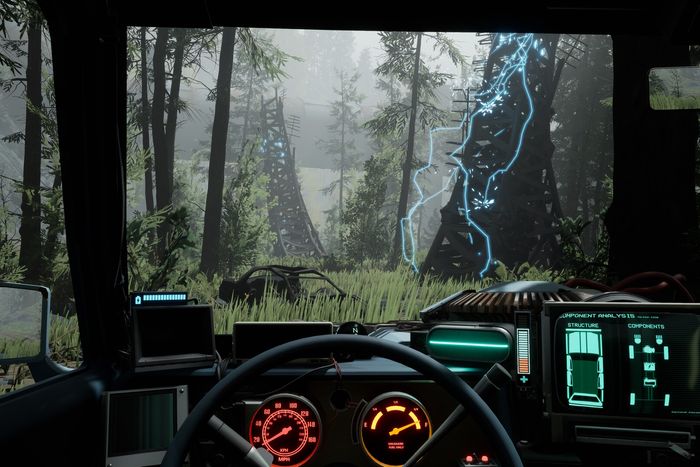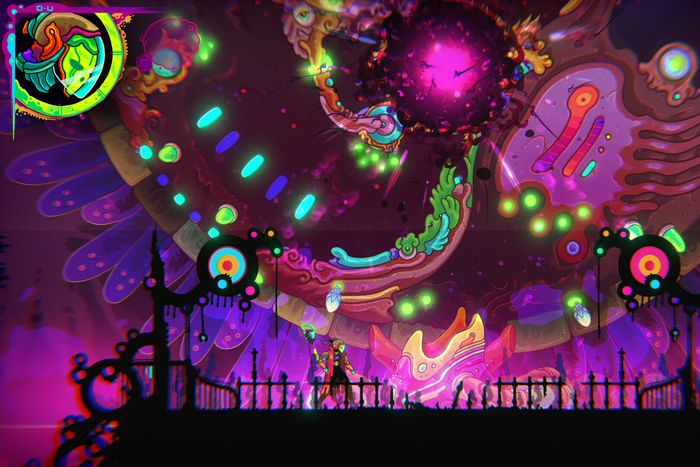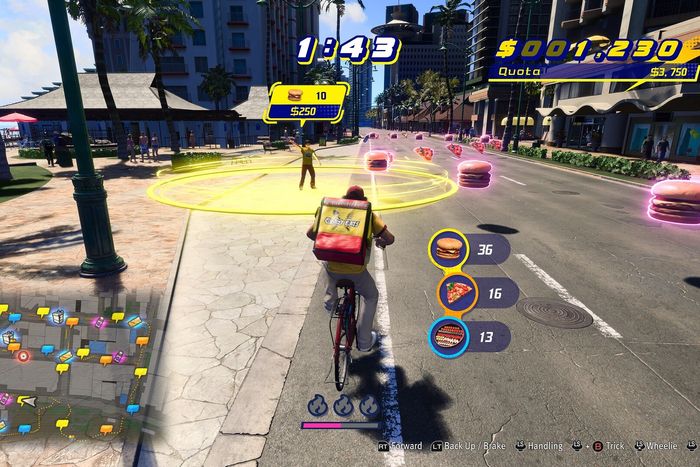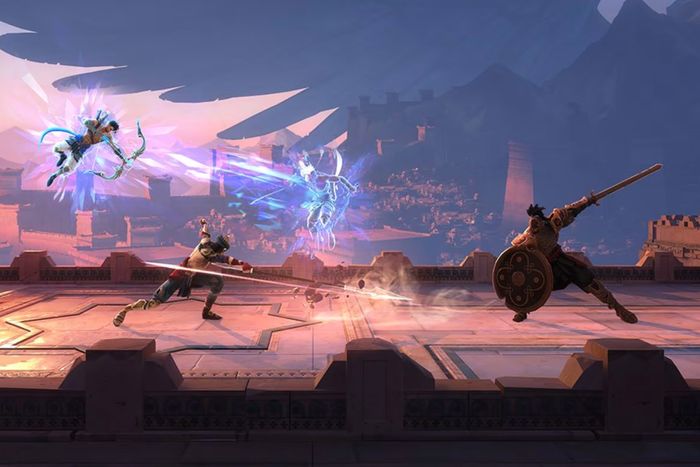
This list is updated monthly with new Best of the Year–worthy titles.
How does the video-game industry follow up 2023, a year that went down in history as one of the best ever for actual releases and one of the worst ever for its thousands of laid-off workers? By continuing both trends into 2024 with a similarly intense energy. Sticking to the good news, we’ve already enjoyed one bona fide Game of the Year contender, a dragon-slaying epic with truly devious design, and a handful more titles that have caused no end of delight. What stands out among this disparate bunch is the medium’s transportive potential: a Hawaiian sojourn with a motley crew of lovable weirdos; gardening in the outer reaches of the cosmos; a time-stricken Persian fortress. During a year in which the world has been going through it, these games have felt like the most sacred, necessary of things: a sanctuary.
All games are listed chronologically, starting with the most recent releases.
Still Wakes The Deep
(PC, PlayStation 5, Xbox Series S/X)
Christmas 1975: an oil rig off the eastern coast of Scotland. In Still Wakes the Deep, you play as electrician Caz Mcleary, who has the unfortunate fate of being onboard when a cosmic horror entity is unearthed from the bedrock. What occurs is a brilliantly tense game of first-person hide-and-seek with a commanding sense of style: schlocky B-movie monster horror à la John Carpenter through the class-conscious lens of Ken Loach. The pacing is masterful, ratcheting with every duck, dive, crawl, and leap, all while serving as a cautionary tale of mankind’s hubris, its belief in a God-given right to strip the Earth of its natural resources. When not contending with vertigo-inducing heights or bootlicking middle managers, quieter moments shimmer with a strange, unknowable beauty — the calm, if we can call it that, amid the swirling storm that engulfs the doomed rig.
Lorelei and the Laser Eyes
(Nintendo Switch, PC)
Lorelei and the Laser Eyes poses an odd yet tantalizing question: What if a compendium of word and number puzzles, the kind you might take on holiday, were scattered about a creepy hotel? And what if the aesthetic of this delightfully off-kilter, head-scratching experience were indebted to French new wave cinema, particularly Alain Resnais 1961 classic, Last Year at Marienbad? Disorientating at first, the designers at Swedish studio Simogo, gradually (and masterfully), teach you to recognize the patterns and logic which govern this metatextual world. Like Tetris, another classic of the puzzle genre, Lorelei and the Laser Eyes has the power to enter your dreams, only not as blocks but as maddening, endlessly recurring numbers. 1847 can go to hell.
Animal Well
(Nintendo Switch, PC, PlayStation 5)
Dense and esoteric without feeling cold or inaccessible, the puzzle-platformer Animal Well is the project of lone designer, Billy Basso, developed over a remarkable seven years. In the Borgesian depths of the titular well reside a menagerie of bewitching creatures: gigantic flamingos, killer ostriches, an unnerving ghost cat. The lo-fi pixel-art graphics sell the dank, eerie loneliness of this setting. More tantalizingly, Animal Well possesses a wonderful, and rare, sense of physical cohesion. A Slinky (one of the pleasingly humdrum objects you pick up on your journey) cascades down the cavernous interiors; a Frisbee bounces about the echoey walls and can be used to distract ravenous dogs. It’s not just the fact that Animal Well feels like a real place that marks it out as something special; it behaves like one, too.
Indika
(PC, PlayStation 5, Xbox Series S/X)
Who knew the third-person adventure game, popularized in the 1990s by a certain Lara Croft of Tomb Raider fame, could take such a daring and downright weird turn? Indika, unlike Croft, is not your typical video game protagonist, a Russian nun who is in communion with the Devil himself. You direct her across a series of strange fairy-tale locales through an endless expanse of snow-covered hills with architecture so wonky and supersize that it defies the laws of conventional physics. There are puzzles: Some rip the very fabric of Indika’s reality apart; others rearrange entire neighborhoods. It’s always a treat seeing Kazakhstan-based developer Odd Meter use the language of video games to take us deep into the mind of our unlikely hero. Consider it as much a beautifully nuanced character study as a hell-raising adventure.
Dragon’s Dogma 2
(PC, PlayStation 5, Xbox Series S/X)
Unlike FromSoftware’s Dark Souls games, Dragon’s Dogma 2 is not necessarily a challenging game so much as one that demands effort. Sure, you’ll get pummeled by giant monsters, from griffins and ogres to lumbering cyclopses, but more than honing your combat skills, the game is all about internalizing its airtight logic and acting accordingly. Use the day-night cycle to your advantage, preparing while the sun is down, navigating when it is up. Talk to absolutely everyone because quests do not just fall into your lap. Listen to what they say because quest markers, for the most part, simply do not exist. Throw in the ambient multiplayer of the pawn system, one that lets you create a secondary character and download those of your friends’, and you have a clockwork set of mechanics that summon, with bravado, ingenuity, and no shortage of flair, the most highly coveted of interactive experiences: pure adventure.
➽ Read Lewis Gordon’s full review of Dragon’s Dogma 2.
Pacific Drive
(PC, PlayStation 5)
Pacific Drive is destined to become an all-timer with a very specific type of video-game fetishist. It pairs crafting busywork with white-knuckle car rides through meteorological maelstroms, all while summoning an exquisitely quiet, lonely atmosphere reminiscent of the great Half-Life 2. It’s a weird mix — fitting, really, for a game that’s clearly indebted to the weird fiction of authors like Jeff VanderMeer. But it hangs together beautifully: Crafting is satisfying and meditative, driving is utterly exhilarating, and the presentation is simply ravishing (both the weather effects and your car’s gorgeously tactile dashboard). It adds up to a consistently absorbing and strangely alluring nightmare. You can practically smell the car fumes.
Balatro
(Mac, Nintendo Switch, PC, PlayStation 4, PlayStation 5, Xbox One, Xbox Series S/X)
The roguelike deckbuilder, a genre mash-up of the run-based old-school physical deckbuilders (like Magic: The Gathering), has long made a strong case for being video games’ most compulsive genre. Balatro takes it to the next level with the introduction of a fiendish element: poker. At first, the game plays a lot like poker in the real world: Two pair? Fine. A flush? Even better. Full house? Now we’re talking. Between rounds, however, you get to spend your winnings in the shop, accruing modifying cards that flare the action off in genuinely bizarre directions. These might be holograph, steel, or gold versions of cards that confer multipliers or additional chips. Heck, tarot cards are even part of this unruly equation, transforming your deck in strange and interesting ways. Within a few rounds, Balatro becomes a kaleidoscopic blur of numbers and color. It’s poker, then, but not quite as you know it — poker that feels nearly psychedelic.
Ultros
(PC, PlayStation 4, PlayStation 5)
The second Metroidvania on this list elicits a strikingly different emotional register to the first. Yes, Ultros can make you feel acutely alone as you plot a route off its abandoned spaceship (here called the Sarcophagus), and it will likely inspire glee through its wonderful, viscera-slicing combat. But slowly, these feelings make way for something more nourishing. Ultros is also a game about gardening: You plant seeds in the ground, they yield fruits, and, more tantalizingly, they begin to alter the environment. The game’s great trick is that it doesn’t go out of its way to explain how this alien shrubbery works. So you experiment and hybridize, sometimes doing little more than letting time pass to ensure the bizarre flora can blossom into its true form. By the game’s end, the Sarcophagus is a tangled web of bioluminescent roots, shoots, and foliage — so pretty that you might not actually want to hop into the escape pod.
Like a Dragon: Infinite Wealth
(PC, PlayStation 4, PlayStation 5, Xbox One, Xbox Series S/X)
In its Like a Dragon series, one of Ryu Ga Gotoku Studio’s many strokes of genius is the protagonists, who are the perfect anchors to the open-world, gangster mayhem unfolding around them. Ichiban Kasuga, possibly the sweetest, most well-meaning former yakuza to grace any piece of fiction (video games or otherwise), doesn’t question each increasingly silly plot twist or insane mini-game but throws himself into the action with naïve abandon. Sunny Hawaii, a land of blue sea, golden sand, and extreme income inequality, only exaggerates the franchise’s long-held eccentricities, but Ichiban is there, the gamest of guides, marshaling each bonkers moment to move onto the next.
➽Read Nicholas Quah’s review of Like a Dragon: Infinite Wealth.
Prince of Persia: The Lost Crown
(Nintendo Switch, PC, PlayStation 4, PlayStation 5, Xbox One, Xbox Series S/X)
An idea so perfect and obvious that it’s a wonder nobody had thought of it before: Prince of Persia but a Metroidvania. For the genre born in the 1980s, labyrinthine settings have long been Metroidvania’s defining feature, and Prince of Persia: The Lost Crown delivers a doozy: a mountaintop fortress in which time has gone haywire. You must acrobatically navigate your way past false floors, guillotines, spiked pendulums, and secret doors, all while engaging in swordplay that truly earns the adjective swashbuckling. As mechanically engaging as it is, the lifeblood of The Lost Crown is the wonderfully unnerving sense of isolation it imparts through the eerie, temporally blighted location. Getting out doesn’t just require thumb-shredding dexterity, wit, and guile but also — fittingly for its premise — patience.


